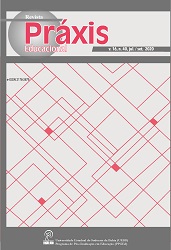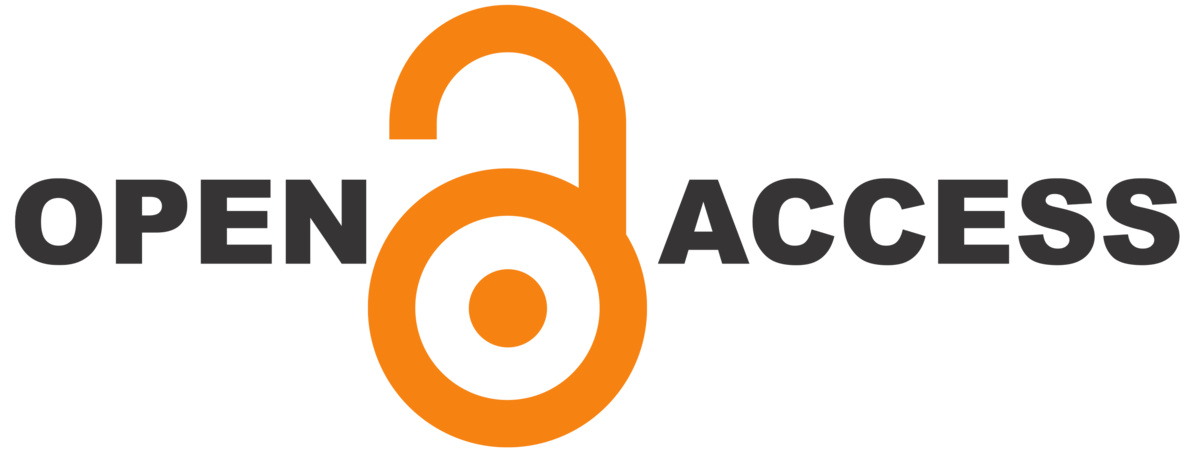THE PATH OF FIVE INSTITUTIONALIZED BOYS: A STUDY ABOUT THE EDUCATIONAL PROPOSAL FROM A FOSTER HOUSE IN PORTUGAL
DOI:
https://doi.org/10.22481/praxisedu.v16i40.6911Abstract
The study presented has investigated the educational proposal of Casa do Gaiato de Paço de Sousa, Portugal. We looked for a dialog either for theorical and empirical reflection, always considering that dialog as a scientific praxis in education. The research fits in the parameters of the phenemological- interpretative paradigm and was based on a qualitative and narrative methodology. Biographical and semi-directional interviews were used as a technique for collecting information, as well as document analysis and observation which provided us a heuristic interaction with the studied phenomenon. Content analysis was performed through a detailed cross-sectional analysis of the interviews of the participating subjects, in their perceptions of life before, after entry and during their stay in the house as well as their future perceptions. The discussion of the results suggests that the educational proposal of Casa do Gaiato de Paço de Sousa was significant in their lives, in their processes of social (re)insertion, namely in relation to a social and scholar promotion, in preparation for autonomy and transition to the labour world, acquisition of skills, identity building and formation of a critical subject.
Downloads
References
AMADO, João & FERREIRA, Sónia. A entrevista na investigação em educação. (p. 207-232). In: AMADO, João (2014). Manual de investigação qualitativa em educação. Coimbra: Imprensa da Universidade de Coimbra.
AMADO, João (2014). Manual de investigação qualitativa em educação. Coimbra.
BAPTISTA, Isabel (2005). Dar rosto ao futuro: a educação como compromisso ético. Porto: Profedições.
BARDIN, Laurence (1977). Análise de Conteúdo. Trad. Luís Antero Reto e Augusto Pinheiro. 1. ed. São Paulo: Martins Fontes.
CANDEIAS, Marisa & HENRIQUES, Helder (2012). 1911/2011: um século de proteção de crianças e jovens. Rio Grande do Norte: Centro Interdisciplinar de Investigação e Inovação do Instituto Politécnico de Portalegre.
CLANDININ, D. Jean & CONNELLY, F. Michael (2011). Pesquisa narrativa: experiências e histórias em pesquisa qualitativa. Uberlândia: EDUFU.
DELGADO, Paulo (2006). Os direitos da criança: da participação à responsabilidade. Porto: Profedições.
GOFFMAN, Erving (1961). Manicômios, prisões e conventos. 7ª edição. São Paulo: Editora Perspectiva S.A.
MORGADO, José Carlos (2012). O estudo de caso na investigação em educação. Santo Tirso: DE FACTO EDITORES.
QUINTÃNS, Cláudia Raquel Pereira (2009). Era uma vez a instituição onde eu cresci: narrativas de adultos sobre experiências de institucionalização. Tese de Mestrado, Braga: Universidade do Minho.
SARMENTO, Manuel Jacinto & GOUVEIA, Maria Cristina de Soares. (Orgs.) (2009). Estudos da infância: educação e práticas socias. 2 ed. Petrópolis, RJ: Vozes.
VALA, Jorge (1990). A análise de conteúdo. In Augusto Silva & José Pinto (Eds.) Metodologia das ciências socias. (pp. 101-128). Porto: Edições Afrontamento.
Leis
Lei nº 147/99
Lei de Proteção de Crianças e Jovens em Perigo – LPCJP (Lei nº 147/99)
Disponível em: http://www.pgdlisboa.pt/leis/lei_mostra_articulado.php?nid=545&tabela=leis&so_miolo
Lei nº 166/99
Lei Tutelar Educativa – LTE (Lei nº 166/99)
Disponível em:
http://www.pgdlisboa.pt/leis/lei_mostra_articulado.php?nid=542&tabela=leis
Relatório
Relatório CASA 2016 -
Relatório de Caracterização Anual da Situação de Acolhimento de Crianças e Jovens. Disponível em: http://www.seg-social.pt/documents/10152/15292962/Relatorio_CASA_2016/b0df4047-13b1-46d7-a9a7-f41b93f3eae7
Downloads
Published
How to Cite
Issue
Section
License
Você é livre para:
Compartilhar - copia e redistribui o material em qualquer meio ou formato; Adapte - remixe, transforme e construa a partir do material para qualquer propósito, mesmo comercialmente. Esta licença é aceitável para Obras Culturais Livres. O licenciante não pode revogar essas liberdades, desde que você siga os termos da licença.
Sob os seguintes termos:
Atribuição - você deve dar o crédito apropriado, fornecer um link para a licença e indicar se alguma alteração foi feita. Você pode fazer isso de qualquer maneira razoável, mas não de uma forma que sugira que você ou seu uso seja aprovado pelo licenciante.
Não há restrições adicionais - Você não pode aplicar termos legais ou medidas tecnológicas que restrinjam legalmente outros para fazer qualquer uso permitido pela licença.












